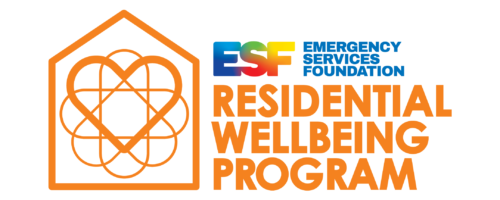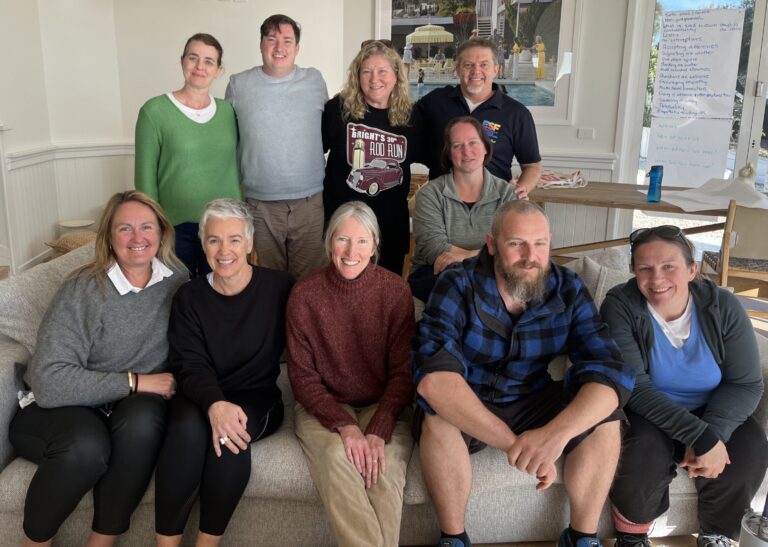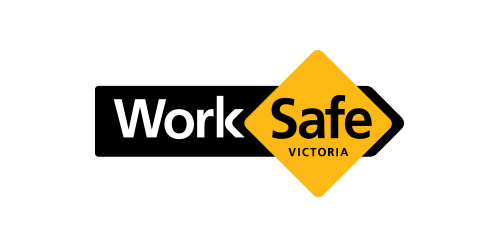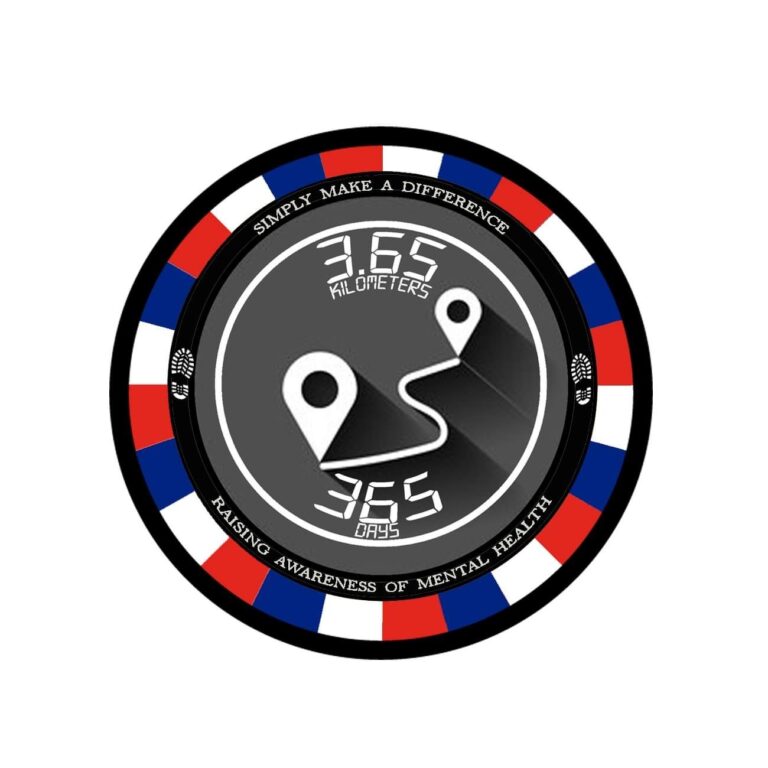
The meeting recording of the release of the Residential Wellbeing Program Pilot Report is now available to watch here.
Residential Wellbeing Program Pilot
The six ESF led pilot programs took place between April and October 2024, and were open to participants from ESF member agencies who were assessed as sub-clinical or in the yellow-orange zone on the mental health continuum.
Members from 9 of ESF’s member agencies were involved as follows.
Triple Zero 13
SES 1
FRV 3
Victoria Police 5
CFA 11
Ambulance Victoria 6
DEECA FFM 5
Red Cross 1
LSV 3
The ESF Residential Wellbeing Program has been informed by the British Columbia First Responder Resiliency Program by Duncan Shield and David Kuhl, developed in partnership with the BC Professional Firefighters Association, the BC Police Association, and Blueprint at the University of British Columbia Faculty of Medicine.
The principles of the pilot program were:
- Participants self-nominated via the ESF website.
- There were high levels of respect for confidentiality and individual dignity. ESF has in place a multi layered program governance structure.
- All information collected was only accessed by clinician facilitators involved in the program, and not shared with agencies.
- All information will be kept secure using clinical management software, Cliniko, which is only accessible by the clinician facilitators.
- Participants were required to sign an informed consent and the Phoenix Australia evaluation team have achieved the appropriate ethics approval through the University of Melbourne.
- The program was for people who have ‘experienced a lot’ / are in the yellow-orange zone on the mental health continuum.
- This initiative was not suited to everyone. People were assessed for clinical and personal suitability. In some cases the assessment process identified people whose risk is more advanced and therefore unsuitable for this program. These people were directed to appropriate services.
- Operational feasibility was considered when offering places to participants.
As a pilot program participants are involved in a comprehensive evaluation process that replicates what has been undertaken for the Canadian program through Movember funding. Data was collected on entry to the program, at four weeks to six months post the program. The program is being independently evaluated by Phoenix Australia with cost benefit and analysis being undertaken by Findex.

As participants were preparing to leave the first program, they reflected on the experience of the last four days:
Rationale for the Program
A gap has been identified in terms of early intervention initiatives for Victorian emergency service workers. The Residential Wellbeing Program has been developed to help fill that gap. There are no similar programs in Victoria that exist to provide the same sort of intensive early intervention to help avoid the risk of more serious mental injury.
Purpose of the Pilot
The purpose of establishing a Residential Wellbeing Pilot Program for Victorian emergency service workers is to:
- Assist serving emergency workers to understand the mechanisms and effects of operational stress on the body, the brain, on behaviour and on relationships.
- Provide opportunity to discuss the impact of personal emergency response experiences with peers in a systemic and professionally facilitated environment.
- To equip participants with skills for self-regulation, effective communication, and planning strategies to maintain their resilience while facing ongoing operational challenges.
- To help minimise progression to serious mental injury and WorkCover claims.
- To demonstrate through evaluation the benefit of such an early intervention initiative for participants, families and organisations.
ESF's Residential Wellbeing Program Based on The British Columbia First Responder Resilience Program
ESF considered various program approaches and options internationally. From this work it was determined that the British Columbia First Responder Resilience Program (BCFRRP) provides a model which best aligns with ESFs goals and which ESF could effectively emulate and tailor to local needs.
BCFRRP is a program built from an evidence-based model that was developed over 15 years for military veterans. It is delivered as a partnership between the University of British Columbia’s Men’s initiative and the BC Professional Firefighters’ Association. It is now also delivered to police and paramedics in Canada. Evidence of success comes from data collection and testimonials, and this is being comprehensively expanded with assistance from a Movember Grant.
ESF has established a working relationship with Prof Duncan Shields from the University of British Columbia and Steve Farina from the BC Professional Firefighters Association’ who have agreed to be strategic advisors/mentors for ESF as it develops its Residential Wellbeing Program (RWP). This is with a view to future collaboration in terms of data collection and sharing of experience.
The program’s design is influenced by the theories of Cognitive Behavioural Therapy, Exposure Therapy, Written Exposure Therapy, Life Review, Conflict Resolution and Communication Skills, Motivational Interviewing, Relaxation and Self-Regulation Training, and Mindfulness. The concept of change is shaped by Cognitive Processing Theory, Clinical Neuroscience, Group Theory, Gender Studies, and Seligman’s Positive Psychology Model.
Utilising principles of positive psychology and cognitive behaviour therapy, the program is designed using narrative therapy to empower participants to manage their own mental health, reducing the risk of developing serious conditions and making a mental injury claim.
The program will be a professionally facilitated by two local mental health professionals familiar with the unique emergency services working environment and trained in program delivery by Prof Duncan Shields. The ESF Mental Health Advisory Group will assist to suitable facilitators.
Over four days participants are led through the program starting with the formation of a cohesive group to support a safe environment for later phases of the program. The psychoeducational components of day one provide them with the evidence-based rationale underpinning the program so that they understand the rationale for all activities.
The desired learning outcomes for participants are:
- A better understanding of the mechanisms and effects of single incident or cumulative operational stress on the body, on the brain, on behaviour and on relationships.
- Strengthened knowledge and skills to maintain personal resilience and wellbeing, and an improved capacity to support their peers and.
- Increased awareness of the impact of personal emergency response experiences on self and others and the impact of gender on the experience of stress and how it is interpreted and communicated with others.
- A personal psychological wellbeing tool kit and strategic plan to maintain resiliency and wellbeing under operational load, and to identify and mitigate potentially overwhelming experiences in their roles through appropriate skills and resources.
- Skills to improve relationships with peers, partners, and family members.
- Connection to services, supports and resources to better maintain their own resiliency and support their peers.
As a point of difference to the BCFRRP each participant will be encouraged to nominate a support person who is considered their main ‘support crew’ throughout the program. These people will separately come together with the facilitators to understand how the program operates, what it will provide participants, how the role of support crew is vital to ongoing success post-program, and the need for evaluation input.
Participants will come together with their nominated support person at six weeks post-program completion to help consolidate learning.
The Power of Early Intervention
National and international research has established the critical importance of early intervention “to reduce the impact of developing mental health issues, and to minimise the impact that they have on people’s lives” (Lawrence et al. 2018, p. 113; see also Ortner 2003; Arango et. al 2018). Building on best practice learnings in public health, responding early and even prior to the presentation of symptoms is associated with improved health outcomes (McGorry 2008; Kupfer, Frank & Perel 1989). Early intervention encompasses a range of activities from promoting existing wellbeing to offering resources to support people with psychological distress and other early warning signs. It is linked to improved mental and physical health, better work productivity and community participation outcomes over time, and far into the future (Victorian Department of Health 2020).
Mental health conditions tend to develop slowly and increase in severity over time. Enabling personnel to have access to appropriate and early support mechanisms is critical for maintaining mental health, building resilience, and assisting people in times of struggle and crisis. In addition, early treatment and support can prevent the accumulation of stress build up and in doing so, reducing the chances of people becoming ill in the first place (Hodgson, Abbasi & Clarkson 1996; Muñoz et. al 2010). Targeting risk and promoting protective factors to prevent, halt and interrupt the onset and progression of mental injury has clear benefits in terms of reducing disease burden and compensation claims. The business case for this contemporary best practice is no better summed up than in the age-old expression “an ounce of prevention is worth a pound of cure”.
Early intervention features in the models and recommendations of experts and agencies working to improve mental health and wellbeing of Australian and International police and emergency service workers and volunteers. Based on their extensive study on this topic, Beyond Blue (2018) recommends emergency service workers “experiencing mental health symptoms or conditions, regardless of cause, having access to suitable early intervention services and supports”. The report continues, “such an approach would ensure that workers’ conditions are treated early – ensuring better outcomes and recovery, reduced time out of the workforce and a reduction in the number and complexity of claims arising” (Beyond Blue, 2018, p. 24).
ESF’s approach to developing a Residential Wellbeing Program Pilot was informed by the following:
- A Churchill Scholarship report which considers international wellbeing retreats for emergency responders
- A visit from the CEO at the UK Police Treatment Centre to visit Victoria in 2019 to meet agency heads and speak at the Emergency Management Conference
- An ESF Scholarship report which considers Australian public wellbeing retreats and what they could offer emergency workers.
- Discussions with founders of the British Columbia First Responder Resilience Program
- An ESF Learning Network working group which undertook preliminary consideration of program risks and implementation.
- Presentation by Canadian and NZ program leads to sector stakeholders.
- A comprehensive literature review.
- A qualitative study to understand the needs and expectations of such a program from emergency service workers.
- A preliminary business case
- Visit to Canada to participate in a program and speak with participants and partners
The pilot program has been made possible with funding support from:





